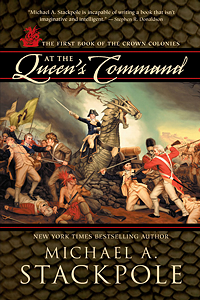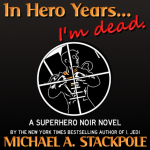When is Crap crap?
In a recent blogpost, J. A. Konrath addressed the fears by some writers that their quality work will sink unnoticed, unloved and (worst of all) unpurchased in the great “Tsunami of crap” resulting from everyone self-publishing. He quite correctly notes that this fear is nonsense and promulgated by house slaves. He suggests that their predictions of gloom and doom are based in their no longer feeling special, and in jealousy over the success entrepreneurial writers are having in the digital marketplace. I’ve always disliked the jealousy argument, not because it’s not valid, but because it masks a deeper, more terrible reason.
Writers who profess a fear that their work will sink in the cesspit of self-published work throw out economic chaff to insulate them from their true fear: the fear that what they write is crap. This is a fear that strikes them to the core of their being. It’s an echo of the fear we all faced when we first sent a story out, risking rejection. It wouldn’t be the story being rejected, after all, it would be us being rejected. Their fear is that they are unworthy.
It doesn’t take a rocket scientist to realize that one variable in the whole writing deal is luck. I can look back at my career and isolate points where good and bad luck struck. Early on I had one particular story that got rejected from magazines because, invariably, the editor had just snagged a story on a similar theme, or the magazine was suspending publication or, or, or… Wrong place, wrong time. Heck, I even had a story rejected from an anthology so late in the game, that the introduction to another story actually mentions mine being included in the published book!
On the other side, I’ve been incredibly lucky. One aspect of my getting the Star Wars X-wing novels was that, way back when, I was Kevin J. Anderson’s first editor. When Bantam suggested me to Lucasfilm, LFL asked Kevin if I could do the job. Kevin, friend that he was, said yes. If I’d not worked with him a dozen years previously, that never would have happened.
With this realization that luck plays a part in what we do, all writers can be left to wonder what if lightning had not struck? A lot of writers—most notably those who are afraid of drowning in crap—dwell on the fact that if they’d not been lucky, they’d be like every other poor sap out there. They’d be the folks putting out that ocean of crap. In fact, they know they would be, and they hate that idea. Why? Because the believe that they could not succeed on their own, and if forced to swim, their work will sink without a trace, dragging them down with it.
Folks like me, on the other hand, figure that with or without any particular stroke of luck, we would have gotten where we are. That belief allows us to look to the future, pick our paths toward the future, and push past fear of failure. If I fail, so what? Failure isn’t going to kill me. I pick myself up, dust myself off, and make another run at the mountain. The whole career thing is not about a meteoric rise, it’s about endurance. Endurance is something any of us can do.
Joe ends his essay with an admonition to those who fear they will be subsumed: “DON’T WRITE CRAP.” While I don’t wholly disagree with that sentiment, it’s a bit simplistic a solution for what can be a daunting problem. Let me point out some circumstances that prove this:
1) Stephanie Meyer and Tom Clancy are, neither of them, the most brilliant writers in the world. Their work is judged to be crap by a lot of readers. Just the same, a lot more readers think the sun rises and sets on them. In this case, the judgment of crapitude is relative.
2) I used the cover for my novelization of Conan The Barbarian (it hits the stands this week, buy early and often) to illustrate this essay for a specific reason. I have done a lot of work in other folks’ universes down through the years, and I regularly have readers come up to me and say, “I like your original work, but I never read that franchise crap.” I don’t mind folks not reading franchise work, but do they really think that what I’m doing is turning out crap when I write in a franchise universe? How can it be that the same writer, using the same skills, working just as hard on a franchise novel as anything else, is going to turn out crap?
Likewise, there are some hardcore Conan fans out there who are going to hate the novelization for reasons that have absolutely nothing to do with me or what I’ve written. They’ll hate it because it wasn’t written by the author they would have tapped to do the job. They’ll hate it because the movie wasn’t based on an original Howard story, and the novel is based on the script, therefore it has to suck. (NB: If a work is deemed to be “crap,” the verb to describe its state of being must either be “suck” or “blow.” These are all technical terms in this context.) The fact that readers of any kind bring their prejudices to a work and judge it by them does not mean the work is, in and of itself, crap; it just means it’s crap to them.
3) The fact that any piece of fiction makes money will confer upon it the title of “crap” in the minds of many. The words “commercial” or “escapist” are often used to modify crap in this context.
4) Some readers pick a book at a bad time. The book does not speak to them, or they disagree with it, therefore it is crap. (I included this one both from what I’ve heard from readers and because I’m currently finishing a history of World War One which, the first time I read it, I thought was crap. Now I think much better of it.)
5) Running in tandem with the above, some books will land in the hands of readers who would never like them. I think of earnest young men trying to get their sweethearts to read BattleTech novels, or young women trying to convince their beloveds that Twilight novels really are good. Thanks for playing, but ain’t going to happen.
So, how does a writer know when what they are writing is crap—not relatively, but purely and deeply?
I think every writer knows, in his gut, when he’s put his heart and soul into a story. If he hasn’t been working hard; if he hasn’t been making the tough choices; if he doesn’t love the characters enough to let them grow; if he’s thinking more about the paycheck than the story—then chances are that what he’s turning out is crap. The story won’t have heart. It won’t have characters that readers will want to follow, or shed a tear over. If a writer thinks of a story as just a little “fluff” piece, or has to resort to the invocation of literary criticism to identify and justify the story’s worth, it’s crap.
As Joe says, Don’t. Do. That.
The great thing about the Internet is that we have ample opportunity to form a cadre of first-readers and trusted friends to whom we can show work before we present it to the public. We can ask them questions about aspects that we question ourselves. We can listen to their criticism, distill it for true meaning, and apply it to make the work better.
If, after doing all that, and working as hard as you can on a story, you’ve made the story the best you can possibly make it, it isn’t crap. It might not be the most polished story in the world—developing your skills and voice may take some time—but it’s a better story than you started out with. And if you keep working hard, the next story will be better, and the one after that better still. By offering potential patrons free samples of your work, you let them decide if they want to read you; and they’ll be able to come back and chart your progress to the point where their desire to read and your skill at delivering a story coincide.
If you do that, your work will never sink. It will be good. Folks will notice. They’ll share their discoveries with others. Again, this is not a sprint, this is all about longevity. Keep working, keep writing stories that you’d love to be reading, and you’ll do just fine.
As for the house slaves dwelling in fear that their work will vanish, well, let me be real: think back to when you first sent a story out. Remember that terror that it would be rejected? You survived it. Stung like hell getting a rejection slip, didn’t it? But that didn’t cripple you. It didn’t stop you. Why on earth would you let that same fear, after all these years, control your life and career? Doing that does you a gross injustice, and deprives your audience of work they want to enjoy (and will pay for).
Crap is crap when the author doesn’t care enough to work hard; and doesn’t believe in himself enough to take pride in his work. Those who produce crap will sink without a trace. Not because of a rising tide of crap, but because they deliberately swim toward the bottom, open their mouths, and willfully suck.
And the rest of us will happily swim past the effervescent markings of their demise, moving on into the golden age.
Writing up this series of blog posts is cutting into my fiction writing time. If you’re finding these posts useful, and haven’t yet gotten yet snagged my latest novels, please consider purchasing a book. Nice thing about the new age of publishing is that you become a Patron of the Arts, letting writers know what you’d like to see more of simply by voting with a credit card. (Authors charge less when they sell direct, so you save, we make more, and that frees us to write more.)
 My latest paper novel, At The Queen’s Command, is available at book retailers everywhere.
My latest paper novel, At The Queen’s Command, is available at book retailers everywhere.

My digital original novel, In Hero Years… I’m Dead is available for the Kindle and in the epub format for all the other readers, including the Nook, iPhone, iPod Touch and iPad. (Imagine the Batman, Watchmen and Kick-Ass movies all rolled into one, as written by Dashiell Hammett, and you’ve pretty much got the idea of the book. Oh, and with some satire and political commentary slipped in for irony.)



 06. Jul, 2011
06. Jul, 2011 








86 Responses to “When is Crap crap?”